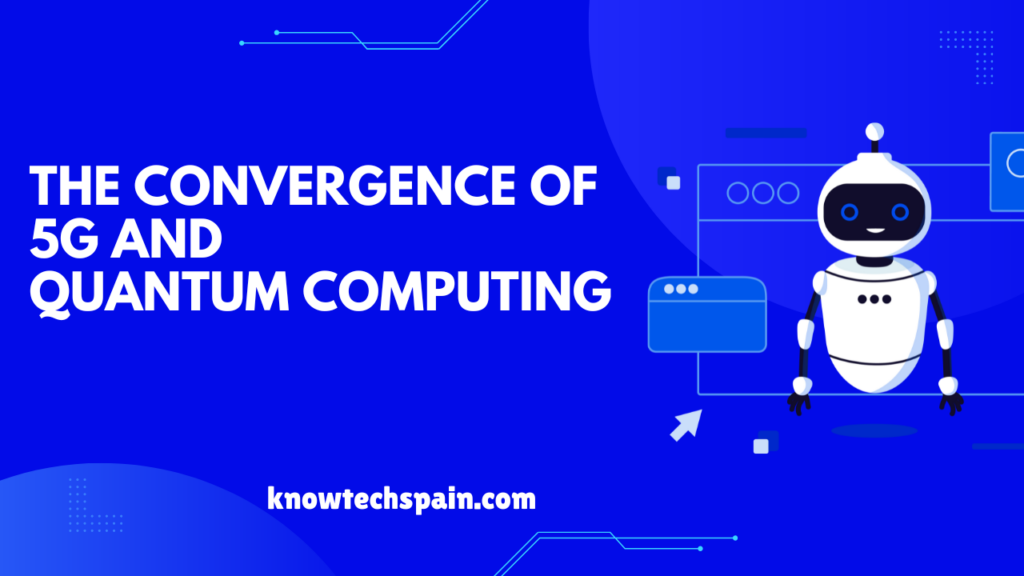The Convergence of 5G and Quantum Computing: Transforming E-commerce and Fintech
1. Introduction to 5G and Quantum Computing
1.1. Understanding 5G technology
5G is the fifth generation of cellular network technology. It’s designed to be much faster than previous generations, with lower latency and the ability to connect many more devices at once. Imagine downloading a movie in seconds instead of minutes!
1.2. Basics of quantum computing
Quantum computing uses the principles of quantum mechanics to process information. Unlike traditional computers that use bits (0s and 1s), quantum computers use quantum bits or qubits. These qubits can exist in multiple states at once, allowing quantum computers to solve complex problems much faster than classical computers.
1.3. The synergy between 5G and quantum computing
5G and quantum computing are like peanut butter and jelly – they’re great on their own, but even better together! 5G provides the speed and connectivity, while quantum computing offers incredible processing power. Together, they’re opening up new possibilities in various fields, including e-commerce and fintech.
2. Impact of 5G on E-commerce
2.1. Enhanced mobile shopping experiences
With 5G, shopping on your phone will be smoother than ever. Pages will load instantly, and you’ll be able to view high-quality product images and videos without any lag. It’s like having a super-fast, super-smooth shopping mall in your pocket!
2.2. Improved logistics and supply chain management
5G will make tracking packages and managing inventory much easier. Imagine knowing exactly where your package is at all times, or a store never running out of your favorite products because they can predict demand so accurately.
2.3. Augmented and virtual reality in online retail
Ever wished you could try on clothes or see how furniture looks in your home before buying? With 5G, augmented and virtual reality experiences will become more common in online shopping. It’s like having a fitting room or showroom right in your living room!
3. Quantum Computing in E-commerce
3.1. Advanced data analysis and customer insights
Quantum computers can process vast amounts of data quickly, helping businesses understand their customers better. It’s like having a super-smart assistant who knows exactly what customers want before they even know it themselves!
3.2. Optimization of pricing and inventory management
Quantum computing can help businesses set the right prices and keep the right amount of stock. This means you’re more likely to find what you want at a price you’re happy with.
3.3. Enhanced cybersecurity for online transactions
Quantum computing can create super-secure encryption methods, making online shopping safer than ever. It’s like having an unbreakable lock on your digital wallet.
4. 5G Advancements in Fintech
4.1. Faster and more secure mobile payments
With 5G, paying with your phone will be quicker and safer. Imagine tapping your phone to pay and the transaction being completed instantly, with no worries about security.
4.2. Real-time fraud detection and prevention
5G’s speed allows for instant analysis of transactions, catching potential fraud as it happens. It’s like having a vigilant guard watching over every transaction you make.
4.3. Improved customer service through AI-powered chatbots
5G will make AI chatbots more responsive and helpful. It’ll be like talking to a knowledgeable friend who’s always available to help with your banking questions.
5. Quantum Computing Applications in Fintech
5.1. Complex financial modeling and risk assessment
Quantum computers can process complex financial models much faster than traditional computers. This could help banks and investors make better decisions about where to invest money.
5.2. Cryptography and secure communication
Quantum computing can create incredibly secure ways of communicating financial information. It’s like having a secret language that only you and your bank understand.
5.3. High-frequency trading optimization
Quantum computers could optimize high-frequency trading strategies, potentially making the stock market more efficient. However, this also raises questions about fairness and regulation.
6. Challenges and Limitations
6.1. Infrastructure requirements for 5G implementation
Setting up 5G networks requires a lot of new equipment and investment. It’s a bit like building a new highway system – it takes time and money.
6.2. Technical hurdles in quantum computing development
Quantum computers are still in their early stages and face many technical challenges. It’s like trying to build a car when we’re still figuring out how wheels work.
6.3. Privacy and security concerns
With more data being transmitted and processed, there are concerns about privacy and security. It’s important to make sure that all this new technology doesn’t compromise our personal information.
7. Future Outlook
7.1. Emerging trends in 5G and quantum technologies
We’re likely to see more integration of 5G and quantum technologies in our daily lives. From smart cities to personalized medicine, the possibilities are exciting.
7.2. Potential new business models and services
These technologies could lead to entirely new types of businesses and services we haven’t even thought of yet. It’s like being at the start of the internet age – who could have predicted social media back then?
7.3. Regulatory considerations and global adoption
As these technologies develop, we’ll need to think carefully about how to regulate them and ensure they benefit everyone. It’s a global conversation that we all need to be part of.
8. Summary
5G and quantum computing are set to change e-commerce and fintech in big ways. From faster, more secure transactions to smarter, more personalized services, these technologies offer exciting possibilities. However, they also come with challenges that we’ll need to address as a society.
9. FAQs
- When will 5G be widely available?
- How does quantum computing differ from classical computing?
- Will 5G and quantum computing make online shopping safer?
- How might 5G and quantum computing affect jobs in e-commerce and fintech?
- What are the main challenges in developing quantum computers?


